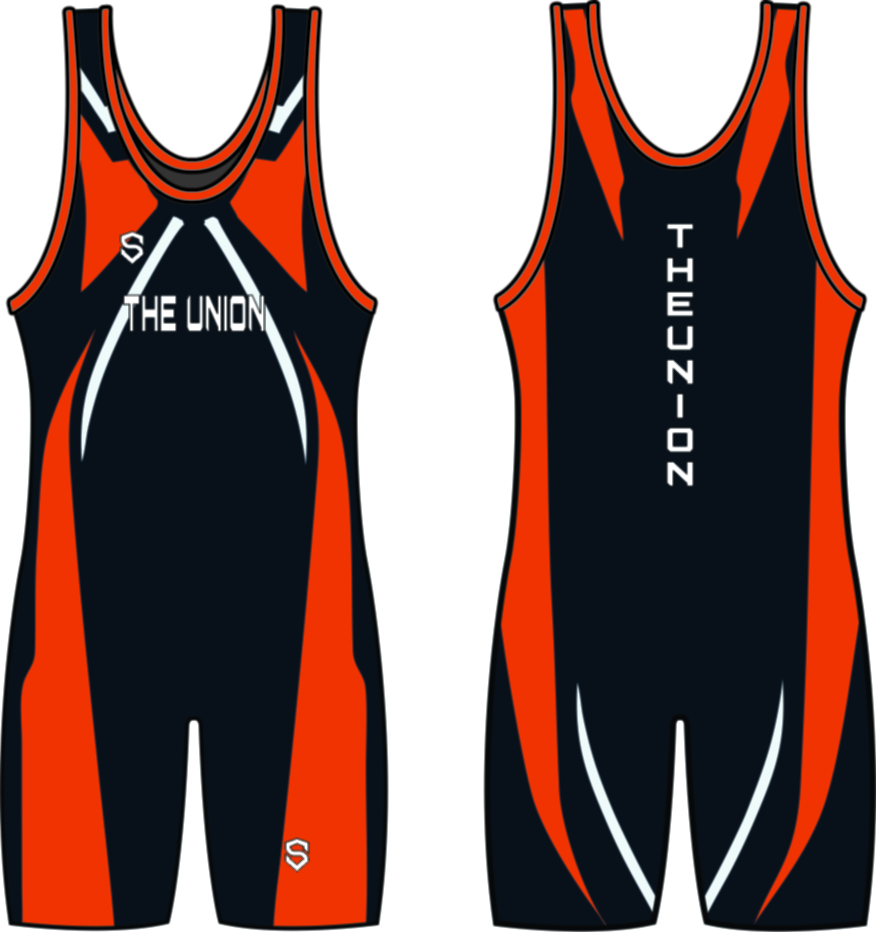A Unique Attire
The wrestling singlet holds a unique and central place in the realm of wrestling, serving as both a practical garment and a symbol of tradition and identity within the sport. This distinctive one-piece uniform, characterized by its form-fitting design and sleeveless construction, plays a crucial role in facilitating performance while embodying the rich heritage and values of wrestling.
At its core, the wrestling
singlet is engineered to optimize performance on the mat. Its close-fitting
design minimizes excess fabric, reducing the risk of opponents gaining leverage
or interference during matches. This streamlined construction allows wrestlers
to move with agility and precision, executing techniques and maneuvers with
fluidity and control. In a sport where every movement matters, the singlet's
form is tailored to enhance speed, flexibility, and efficiency, enabling
athletes to perform at their peak.
Beyond its practical functionality, the wrestling singlet carries deep
symbolic significance within the wrestling
community. Wrestlers often don singlets adorned with team colors, logos, or
emblems, proudly representing their schools, clubs, or national affiliations
during competitions. This visual display of team unity fosters camaraderie and
solidarity among athletes, creating a sense of belonging and shared purpose on
the mat.
The singlet's design also reflects wrestling's storied history and
enduring traditions. Wrestling has
ancient origins, with depictions of athletes wearing similar forms of attire
found in civilizations dating back thousands of years. Over time, the singlet
evolved into the standardized uniform we recognize today, embodying the essence
of wrestling culture and heritage.
For many wrestlers, wearing the singlet is a nod to the sport's illustrious
past and a testament to their dedication to its timeless principles.
Despite its integral role in wrestling, the singlet has not been
immune to controversy and debate. Critics argue that the singlet's revealing
nature can be a source of discomfort or self-consciousness for athletes,
particularly during adolescence. This has led to discussions about alternative
uniform options that prioritize athlete comfort and confidence without
compromising performance. In response, some wrestling organizations have explored
modified uniform designs, such as compression shorts and rash guards, as
potential alternatives to traditional singlets.
However, the singlet's enduring presence and significance in
wrestling culture cannot be
understated. Beyond its practical advantages, the singlet embodies the spirit
of the sport—dedication, resilience, and discipline. Wrestlers train rigorously
to master their craft, pushing themselves physically and mentally to excel in
competition. The singlet becomes a symbol of their commitment and passion, worn
proudly as they step onto the mat to face formidable opponents.
Moreover, the wrestling
singlet serves as a visual marker of athletic identity and achievement.
Wrestlers often develop strong emotional attachments to their singlets,
considering them not just as uniforms but as sacred artifacts symbolizing their
journey and accomplishments in the sport. Many athletes meticulously customize
their singlets with personal touches, such as names, nicknames, or motivational
phrases, further reinforcing the singlet's role as a deeply personal and
meaningful item.
In addition to its symbolic value, the wrestling singlet is a testament to
the inclusive nature of wrestling
as a sport. Wrestlers of all ages, genders, and backgrounds don the singlet,
united by their passion for competition and their respect for the sport's
traditions. The singlet transcends cultural and geographical boundaries,
serving as a universal symbol of athleticism, determination, and sportsmanship.
In conclusion, the wrestling
singlet represents more than just a piece of athletic attire; it embodies the
essence of wrestling
itself—strength, resilience, and tradition. Its form-fitting design and
symbolic significance underscore the sport's timeless appeal and enduring
legacy. While debates persist about its design and comfort, the wrestling singlet remains an integral
part of the wrestling experience,
cherished by athletes for its functionality, symbolism, and the sense of pride
it instills in those who wear it.






Comments
Post a Comment